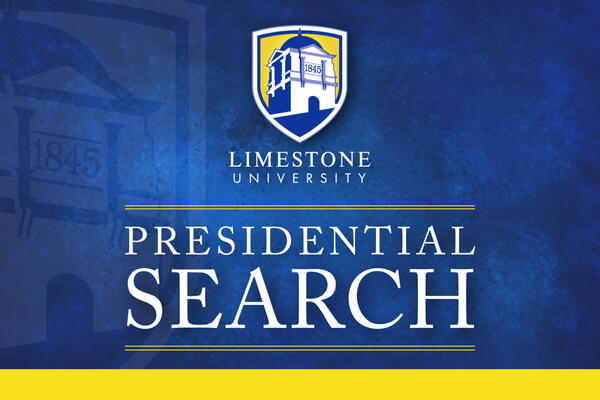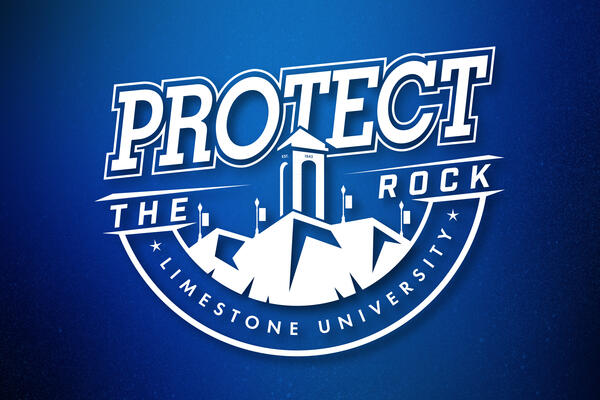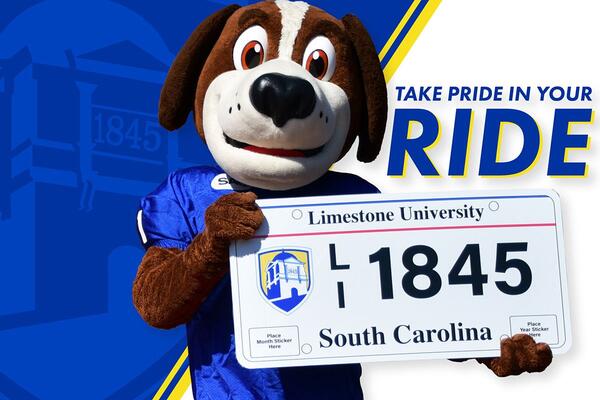April 16th, 2018
Dr. Nichols Conducts Virtual Reality Workshop At National Conference

Virtual Reality was once the dream of science fiction, but so once were computers, the internet, and smartphones. Engaging, augmented reality is quickly becoming a part of daily life. However, there is still much to learn and discover, and a Limestone College professor and his students are peeling back the layers as they pave the way toward the future.
At the National Conference of the Popular Culture Association/American Culture Association last month in Indianapolis, Dr. Randy D. Nichols, Chair of Limestone’s Department of Communication and Interdisciplinary Studies, presented a demonstration and workshop on how his Communication students have been engaging the emerging meta-medium of Virtual Reality. He also made the presentation in April at the College’s Faculty Recognition Session during National Library Week at the A.J. Eastwood Library.
Nichols’ students have been working to discover rules and grammars, develop new media literacies, and negotiate collaborative design through their work together in a Virtual Reality compositional space.
Describing the theory behind the project, Nichols explained, “In Understanding Media, McLuhan writes, ‘The content of the press is literary statement, as the content of the book is speech, and the content of the movie is the novel.’ Therefore, we, who practice in the area of digital communication, build new media literacies by remediating old media literacies. But what happens when we meet a medium that capable of containing several previous media as content? One such meta-medium is Virtual Reality.”
Limestone students in Nichols’ Digital Literacies class collaborated to augment a three dimensional Virtual Reality site with remediated “layers” of old media (text, video, photos, etc.) as informational engagement for visitors to the virtual reality environment. To situate the students’ discoveries made during this engagement, Nichols used written reflections, coding examples, and video interviews from his students. Workshop participants at both sites were able to engage the students’ work on web browsers, by viewing code for the interface, and by wearing VR headsets.
The presentation, entitled “VR as Meta-Medium Workshop: A Collaborative Compositional 3D Project,” explored how students discover rules and grammars, develop new media literacies, and negotiate collaborative composition by working together in a Virtual Reality compositional space.
"It's not enough to master the skills of a particular medium,” Nichols explained. “Students must learn to discover and invent rules and grammars and skills for new media, so they can work in whatever media the future may bring. The brave new digital world of communications does not care how you used to do it. It demands that you invent new communication practices for the ever-changing communications landscape.”
Nichols is a longtime member of the Communication and Digital Culture Area of the Popular Culture Association, and has contributed to conferences and publications for the National Council of Teachers of English, the Association for Teachers of Technical Writing, and the Conference on College Composition and Communication.
In addition to Digital Literacies, Nichols teaches Critical Thinking and Narratives Across Media at Limestone. He shares several of his resources with educators and communicators on his website at RhetoricSoup.com.



